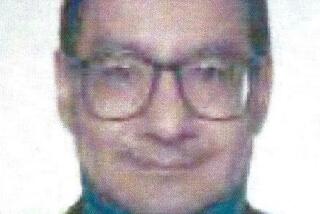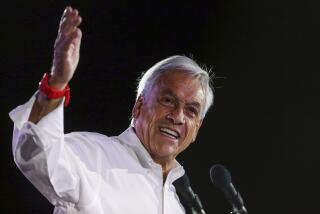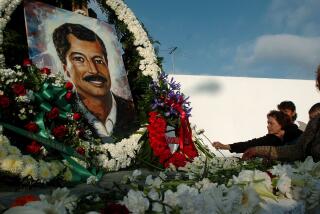Huber Matos Benitez dies at 95; Cuban revolutionary broke with Castro
Huber Matos Benitez, whose disenchantment with the Cuban Revolution he had helped lead brought him the wrath of Fidel Castro and 20 years in prison, died Thursday in Miami after a heart attack. He was 95.
His death was confirmed by his grandson, Huber Matos Garsault.
In 1952 Matos was a teacher and rice farmer in his early 30s when Gen. Fulgencio Batista led a coup that overthrew democratically elected President Carlos Prio Socarras. Hoping to restore democracy to his country, Matos took up arms against Batista’s forces.
After traveling to Costa Rica to obtain weapons and ammunition for the poorly-equipped rebels, he joined with Castro and served as a commander in the Sierra Maestra mountains. The two clashed on occasion, but Matos claimed that at one point Castro named him third in line for leadership after Castro’s brother Raul. The Argentinean Ernesto “Che” Guevara was fifth, Matos maintained.
The revolution overthrew Batista on New Year’s Day 1959, and Matos rolled into Havana at Castro’s side.
“Everyone was euphoric that day,” he recalled in a 2009 interview with the Miami Herald. “We didn’t know yet the revolution would be betrayed.”
Matos became a provincial governor under Castro, but within months he wanted out of the new government. He feared that the Castros and Guevara were steering the country toward communism, and that Fidel Castro had no intention of holding free elections as he had promised.
“There was another agenda,” Matos told Associated Press in 2009. “Fidel said one thing for the public, and the steps he took were another story.”
When Matos first tried to resign, Castro wouldn’t let him. Then, in October 1959, Matos was arrested and convicted of treason at a trial in which Castro himself testified for six hours. Initially told he would face the firing squad, Matos instead was sent to prison because, he later said, Castro wanted to avoid turning him into a martyr.
Matos later recounted the indignities of his two decades of incarceration, including 11 months without sunlight, 13 months without clothing, seven years without a visitor and 18 months without treatment for an arm broken in a beating by prison guards. He estimated that he spent 16 years in isolation.
After his release in October 1979, he was reunited with his wife and four grown children, who were living in Costa Rica. He later moved to Miami and wrote of his ordeal in a book, “How Night Fell.”
In Miami, Matos led the anti-Castro group Independent and Democratic Cuba. An outspoken dissident, he feared assassination attempts and often kept a pistol tucked into his waistband.
In May 2009, when he was 90, he traveled to Honduras to protest a proposal to reinstate Cuba as a member of the Organization of American States.
“I’m one of those who’s convinced that there will be a change in Cuba in a time not very far in the future; that’s inevitable. The system failed completely. It not only failed completely, but among the young generations there’s an eagerness for change that’s unstoppable,” he said.
More to Read
Start your day right
Sign up for Essential California for the L.A. Times biggest news, features and recommendations in your inbox six days a week.
You may occasionally receive promotional content from the Los Angeles Times.






